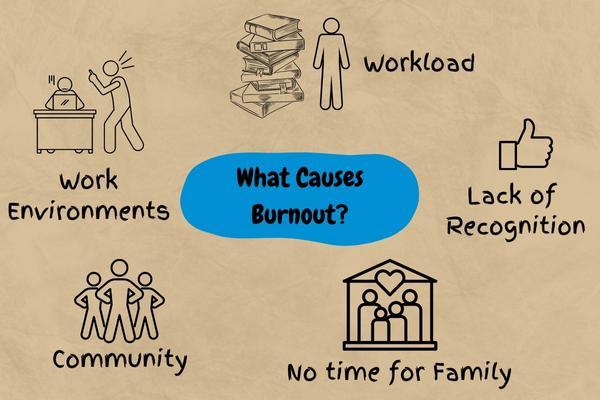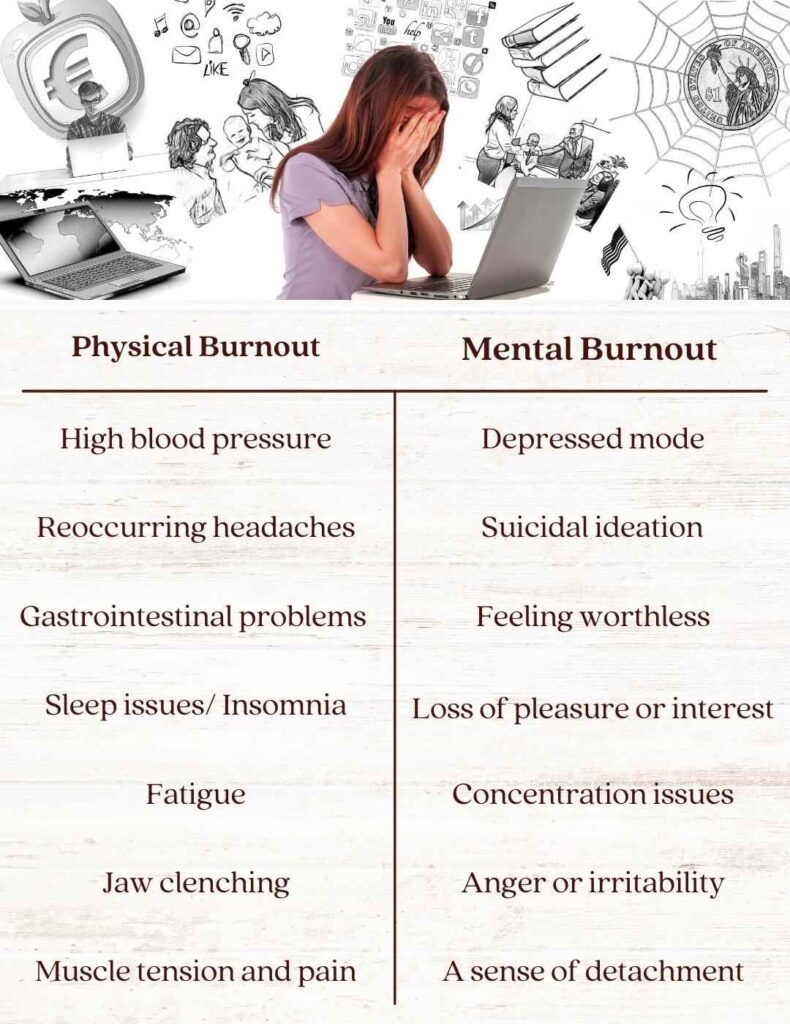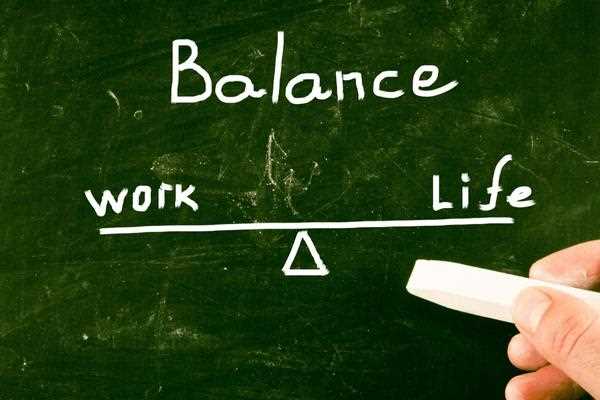“Being overwhelmed means that your life or work is overpowering you. Regain control by clarifying your intentions, setting realistic expectations, and focusing on your next step.” — Daphne Michaels
Do you feel sluggish and exhausted, and do simple tasks seem difficult to complete? Or maybe you find yourself getting too stressed, and it makes you angry or frustrated. If you do, then you may be suffering from burnout.
Going to work, taking care of the family (parenting), meeting up with deadlines, and all the other activities we do daily could pile up and become stressful; all the activities you do daily that stress you out could eventually lead to burning you out.
Although burnout is frequently associated with stress at work (or work-related stress), it doesn’t only affect your working condition or efficiency as it can affect many other areas of your life and, in some cases, even cause health problems.
The good news is there are several ways you can cope with it and even conquer this often-debilitating state of being.
Are you feeling burned out? Then this blog post was tailored specifically with you in mind. In this article, we’ll be looking at what it means to be burned out, its symptoms, and how to deal with it.
What is Burnout?
The term “burnout” can be difficult to define, but it is important to understand that it is not a medical condition. According to the American Psychological Association (APA) dictionary, burnout can be defined as mental, emotional, or physical exhaustion that’s usually accompanied by lowered performance, decreased motivation, and a negative attitude towards oneself and others.
Burnout, which is much worse than ordinary fatigue, makes it difficult for people to handle their day-to-day responsibilities and cope with stress which, in turn, makes them feel overwhelmed by their responsibilities. People who are burned out often feel like they have nothing left to offer and may be afraid of leaving bed every morning. Burned-out people often feel hopeless and adopt a pessimistic outlook toward life.
Most people may not realize that they are burned out until they have gone passed the line between “really tired” and “too drained to function.” And if you are the type who likes to stay busy, then you too might find it hard to determine when you are experiencing work stress or just doing too much.
You can also become burned out when your work-life balance is not synced. This wasn’t so common in the past, but in the last few years, more people are beginning to lose that balance, possibly due to the rise in remote work and technology permeating our daily lives.
One thing you should know about being burned out is that it doesn’t go away on its own, and if left untreated, it could lead to serious psychological and physical disorders such as diabetes, depression, and heart disease.
What Causes Burnout?
People burnout for different reasons. But in general, each cause usually leads to a central tipping point: when stress or pressure from high-stress jobs becomes too much or continues for a long time.
You are particularly vulnerable to burnout if you have:
- Little or no control over your duties or workload
- Unclear job expectations
- Community
- High-pressure work environments
- Little or no recognition (or appreciation) for a job well executed
- Too much work—especially in situations where you have less time to actually do the things you love outside of work.
- Fear of losing a job
Read more on our blog : How to retrain your mind to relax.
Signs And Symptoms of Burnout?
Just because burnout is not a diagnosable psychological disorder doesn’t mean that it should be taken lightly.
Are you worried that you might be burned out, but you are unsure of the signs? Continue reading to find out more about its physical and mental signs and symptoms.
Physical Burnout Symptoms
When you are burned out, your body often tries to show you signs. According to studies, the following are some of the most common physical signs or symptoms:
- High blood pressure (Hypertension)
- Reoccurring headaches
- Gastrointestinal problems
- Sleep issues/ Insomnia
- Fatigue
- Jaw clenching
- Muscle tension and pain
Since burnout is usually caused by chronic stress, it is important to understand how chronic stress affects generally affects the body—learning more about it will help you avoid being burned out.
Chronic stress can be felt physically in terms of changes in appetite, more aches and pains, and low energy levels. If you’re experiencing any of these symptoms, then you’re probably burned out.
Mental Burnout Symptoms
Asides from being burned out physically, you can also get burned out emotionally and mentally.
The following are some of the most common mental health symptoms of being burned out:
- Depressed mode
- Loss of pleasure or interest
- Suicidal ideation
- Concentration issues
- Feeling worthless
- Anger or irritability
- A sense of detachment
Is Burnout Only Due to Work Stress?
No. Even though it’s mostly associated with work stress (problems at work), it can appear in other areas or aspects of life, such as caretaking, parenting, or romantic relationships.
Partners, non-professional caregivers, and parents can also be drained physically and mentally, feel overwhelmed by their responsibilities, or believe that they have failed in their roles.
Stigma and stereotypes—especially parenting—can make people who are burned out (not because of work) feel as though they are to blame for the challenges they face. As a result, they tend to conceal their struggles or difficulties from others.
Burnout can occur in any form, and understanding the root cause is the first step towards dealing with it because if left untreated, it could result in severe consequences. To treat it, you can discuss it openly with your therapist, spouse, friends, or family members, this way. You’ll be able to get the needed help and prevent the negative outcomes that come with it.
Burnout vs Depression
Burnout shares similar symptoms or signs with some mental health conditions, such as depression.
Similar symptoms shared with depression include feelings of hopelessness, loss of interest in things, suicidal thoughts, and physical and cognitive symptoms.
So, how do you tell the difference? How do you tell them apart? People who are depressed (or suffering from depression) experience negative thoughts and feelings about all aspects of life and not just work alone. If you feel this way, then talking to or consulting a mental health professional would be a great help and make you feel better.
It’s also important for those feeling burned out to seek professional support, as untreated burnout can often lead to clinical depression. Our burnout counselling services are designed to help you intervene early and protect your mental health.
How to Deal with Burnout?
“Whenever you feel exhausted, take time to relax, refresh and recharge.” – Lailah Gifty Akita
Are you feeling burned out? Then chances are that you are experiencing job burnout, and you need to make some changes to your work environment.
You can attempt to fix work-related burnout by approaching your human resources to tell them the problems you are facing, or you can try talking to a supervisor. In some cases, the fix needed is a job change (go for low-stress professions) or position—but if you can’t switch jobs, you can at least try switching roles.
A vacation can be able to offer you some temporary relief, but then a week or month vacation yearly won’t be able to save you from feeling burned out. But having daily renewal exercises along with regularly scheduled breaks from work can.
You can start developing clear strategies to help you manage your stress (stress management). Self-care strategies such as engaging in healthy sleeping habits, eating a healthy diet, and getting plenty of exercise.
You can try connecting to a community group or cause that’s meaningful to you. You can join a social, religious, or support group of like-minded people. Such platforms provide people with a place where they can talk to others about how to deal with daily friends and make new friends. Also, if your field or line of work has a professional association, then you can attend meetings and interact with other people who are coping with the work environment or workplace demands.
You should also try reaching out to others. Why? Because talking or reaching out to others is one of the fastest ways to calm one’s nervous system and relieve stress. It’s recommended to talk to someone with experience, such as a mental health professional, to help you deal with it.
Read our blog: “5 Effective Mindfulness Techniques to Reduce Workplace Stress”
Takeaway
Getting burned out can often feel overwhelming, but the sense of being or feeling overwhelmed is simply a signal or sign and not a permanent sentence.
By understanding the root cause of the reason you are feeling burned out and taking note of the signs and symptoms associated with it, you can be able to deal with it, and in situations where you can deal with it on your own, then you can seek the help of mental health professional.
Your brutal experience can be a watershed moment that propels you into a healthier, happier life and a more sustainable career. But all that won’t happen if you can’t deal with it.
Ready for More? Check Out Our Related Articles on Parental Burnout
References
https://www.psychologytoday.com/us/basics/burnout
https://www.verywellmind.com/stress-and-burnout-symptoms-and-causes-3144516
https://health.clevelandclinic.org/signs-of-burnout/amp/
https://www.healthline.com/health/tips-for-identifying-and-preventing-burnout#stages
https://hbr.org/2016/11/beating-burnout
https://asana.com/resources/what-is-burnout
https://www.helpguide.org/articles/stress/burnout-prevention-and-recovery.htm














